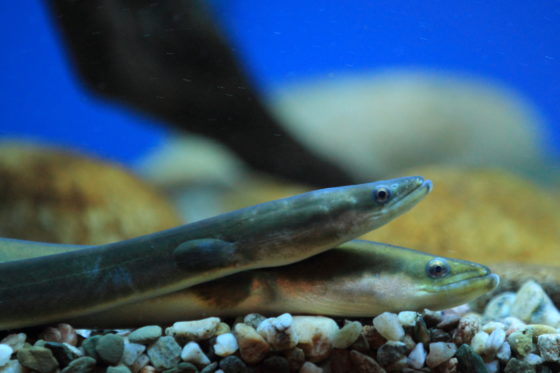
Since 2018, the General Fisheries Commission for the Mediterranean (GFCM) has been at the forefront of European eel management. However, the current GFCM measures adopted in 2023 are still far from aligned with the scientific advice and are unlikely to secure eel recovery. The long-term management measures that the GFCM is set to adopt in 2024 will be the main opportunity to rectify this situation in the foreseeable future.
The GFCM Expert Group on European eel in the Mediterranean (EGEMed) is meeting in Rome on 4–5 June to discuss the latest results of the GFCM Research Programme on European eel in the Mediterranean and possible long-term management measures for eel in the region.
The objectives of EGEMed 2024 are to discuss the results of the work conducted under the 2023–2024 GFCM Roadmap, including the new socio-economic study on European eel fisheries in the Mediterranean and the renewed multi-objective assessment of alternative management measures for eel in the region. The ultimate aim of the meeting is to review the potential management measures and scenarios identified, while also discussing future needs for data collection, reporting and assessment.
Current GFCM measures include a mandatory six-month closure of the fishery and the prohibition of recreational fisheries, and – in 2024 – a 30% reduction of glass eel fishing mortality compared to a 2019–2021 reference period. These measures will need to be strengthened further to significantly boost eel recovery in the Mediterranean region, and increase alignment with scientific advice (ICES, 2023) on fishing opportunities and conservation, which is zero catch for all life stages in all habitats, including catches for restocking and aquaculture.
– Considering that European eel remains in a critical state and that the GFCM objectives for eel management include to “guarantee a low risk of stock collapse while maintaining sustainable and relatively stable fisheries”, it is our view that stronger measures must be adopted, says Niki Sporrong, at FishSec. We are hoping that the GFCM will continue to set the direction for the rest of the EU and beyond.
Based on the advice from the GFCM Scientific Advisory Committee (SAC) and the International Council for the Exploration of the Sea (ICES), as well as the conclusions of the first phase of the GFCM research programme on European eel in the Mediterranean Sea, FishSec and MedReAct recommend that the long-term management measures include the following clear provisions:
- Restore and maintain key eel habitats in the Mediterranean, such as coastal lagoons, including efforts to improve water quality, to maximize health and reproductive capacity of eels by 2029.
- Establish a network of spatial measures, including FRAs, to protect both eels and key eel habitats by 2029.
- Implement a full ban on glass eel fishing to protect recruitment (SAC, 2022; GFCM eel research programme, 2022). Exceptions could be made for translocation of glass eels within the same water body (ICES advice, 2023), if carefully monitored.
- Maintain the six-month eel fishing closures in all waters to protect eel migration, in particular the spawning migration of silver eels on their way to the Sargasso Sea, and ensure that implementation of the closures is aligned with the migration periods.
- Retain the full ban on all recreational fishing for European eel.
- Improve traceability of landings, together with a more effective control system, to reduce IUU fishing.
- Gradually shift to fishery independent monitoring for all eel life stages.
- Make improvements in CPC data collection, reporting and implementation of measures, including a process for data quality control.
- Establish a public GFCM database, including information on the national implementation of eel measures, which would increase transparency and public confidence in the management measures.
- Carry out an interim review after 3 years to assess the effectiveness of the long-term measures.
Considering that European eel is listed by the IUCN as Critically Endangered and the population currently shows no signs of improving, emergency measures should be considered if there is no measurable recovery in the next three years, including a full moratorium of eel fishing for all life stages until a clear improvement, bringing the population above biological limit reference points, has been confirmed.
- Key long-term measures for the recovery of European eel in the Mediterranean
- Key long-term measures for the recovery of European eel in the Mediterranean (in French)
- Joint Policy Brief - Improving Eel Management in the Mediterranean
- Joint Policy Brief - Improving Eel Management in the Mediterranean (in French)